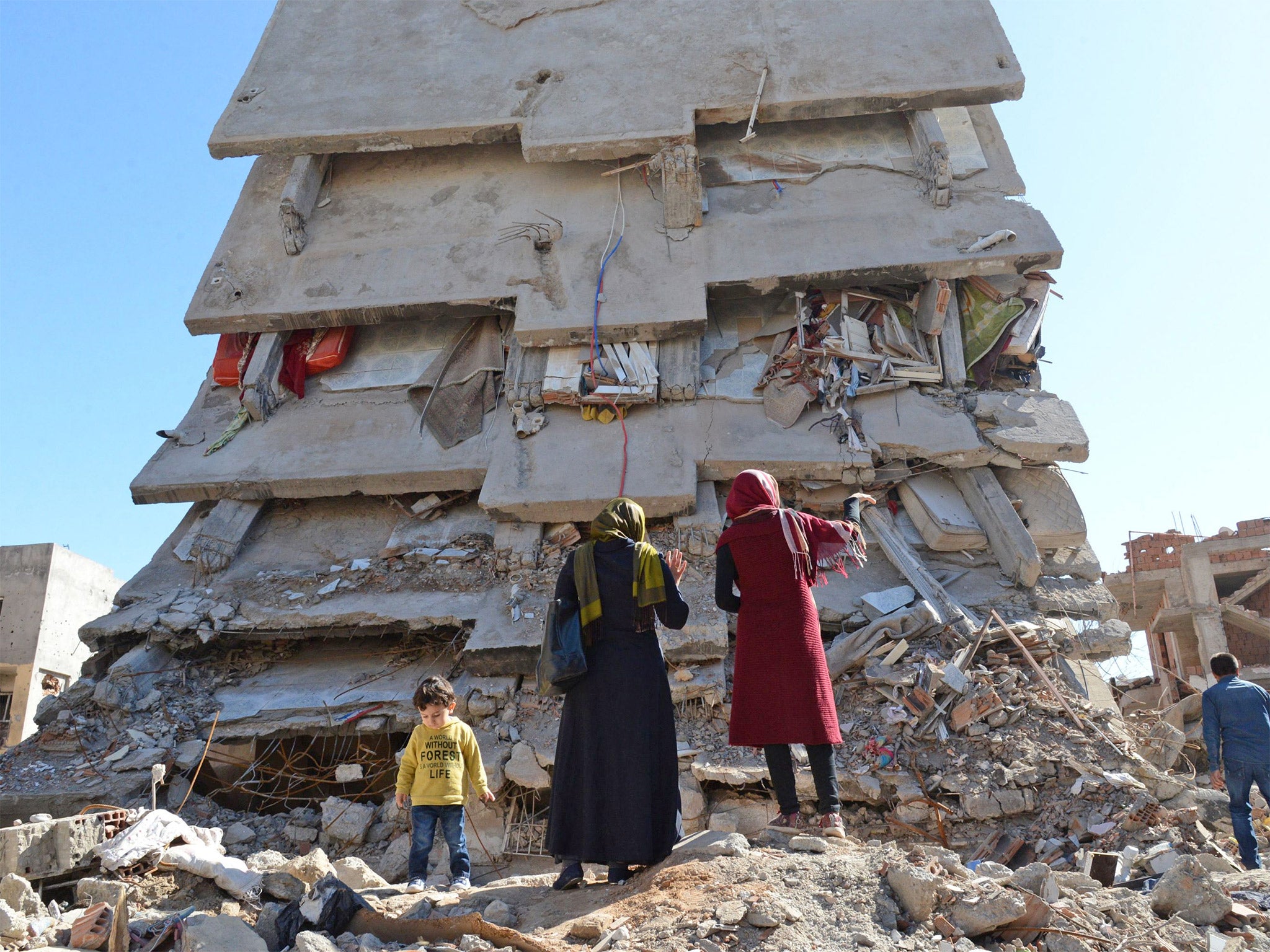2,000 dead and entire neighbourhoods destroyed since Turkey's truce with PKK collapsed, says UN
Turkey’s government has ‘contested the veracity’ of some allegations in new report

Your support helps us to tell the story
From reproductive rights to climate change to Big Tech, The Independent is on the ground when the story is developing. Whether it's investigating the financials of Elon Musk's pro-Trump PAC or producing our latest documentary, 'The A Word', which shines a light on the American women fighting for reproductive rights, we know how important it is to parse out the facts from the messaging.
At such a critical moment in US history, we need reporters on the ground. Your donation allows us to keep sending journalists to speak to both sides of the story.
The Independent is trusted by Americans across the entire political spectrum. And unlike many other quality news outlets, we choose not to lock Americans out of our reporting and analysis with paywalls. We believe quality journalism should be available to everyone, paid for by those who can afford it.
Your support makes all the difference.The Turkish government should investigate hundreds of alleged killings and other rights abuses in Turkey's southeast, the UN human rights office has said, releasing a report on an upsurge in violence there over 18 months.
Based on “remote monitoring”, the report says that around 2,000 people, including 1,200 local residents and 800 security forces, were reportedly killed during the security sweep between July 2015 and December 2016.
The crackdown comes as Turkey has faced many destabilising factors in recent years, including deadly extremist attacks, a failed coup and an influx of refugees from Syria. Meanwhile, Kurdish fighters – some allegedly linked to the Kurdistan Workers' Party (PKK) rebel group – have been making inroads in a fight against the Isis group in Syria.
The 25-page report, which draws on confidential accounts, satellite imagery and other sources, cites the destruction of nearly 1,800 buildings and the reported displacement of at least 355,000 people during the security sweep.
It seeks investigations so that “perpetrators of unlawful killings are brought to justice”, an end to “unannounced, open-ended, 24-hour curfews” and “reparations for victims and family members” whose rights have been abused.
UN human rights investigators have failed to gain access to the largely ethnic Kurdish areas of the south-east despite nearly a year of attempts to do so. Rights office spokesman Rupert Colville said the Ankara government “hasn't really given reasons” why access hasn't been granted.
Mr Colville said the investigation could be domestic, but it would need to be “seen as independent and impartial”.
He said UN human rights chief Zeid Ra'ad al-Hussein was “alarmed by the apparent significant deterioration” in human rights in Turkey, “which he believes is only serving to deepen tensions and make longer-term instability more likely”.
“It appears that not a single suspect was apprehended, and not a single individual was prosecuted, for violations that occurred during this period” from July 2015 to August last year, Mr Colville said.
Turkey's government has “contested the veracity” of some allegations in the report, Mr Colville said, without elaborating. Turkey's foreign ministry didn't immediately respond to a request seeking comment.
The rights office said Turkey's government had indicated that the PKK, which Ankara, the European Union and others consider a terror group, had attacked and killed some security forces.
The report cites “complex challenges” that Turkey has faced since the failed coup in July, but added that measures in a subsequent state of emergency “appear to have largely targeted dissent in general and political parties of the opposition in particular” – especially people of Kurdish origin.
It cited accounts from witnesses and family members of victims in the town of Cizre who “painted an apocalyptic picture of the wholesale destruction of neighborhoods”.
AP
Join our commenting forum
Join thought-provoking conversations, follow other Independent readers and see their replies
Comments